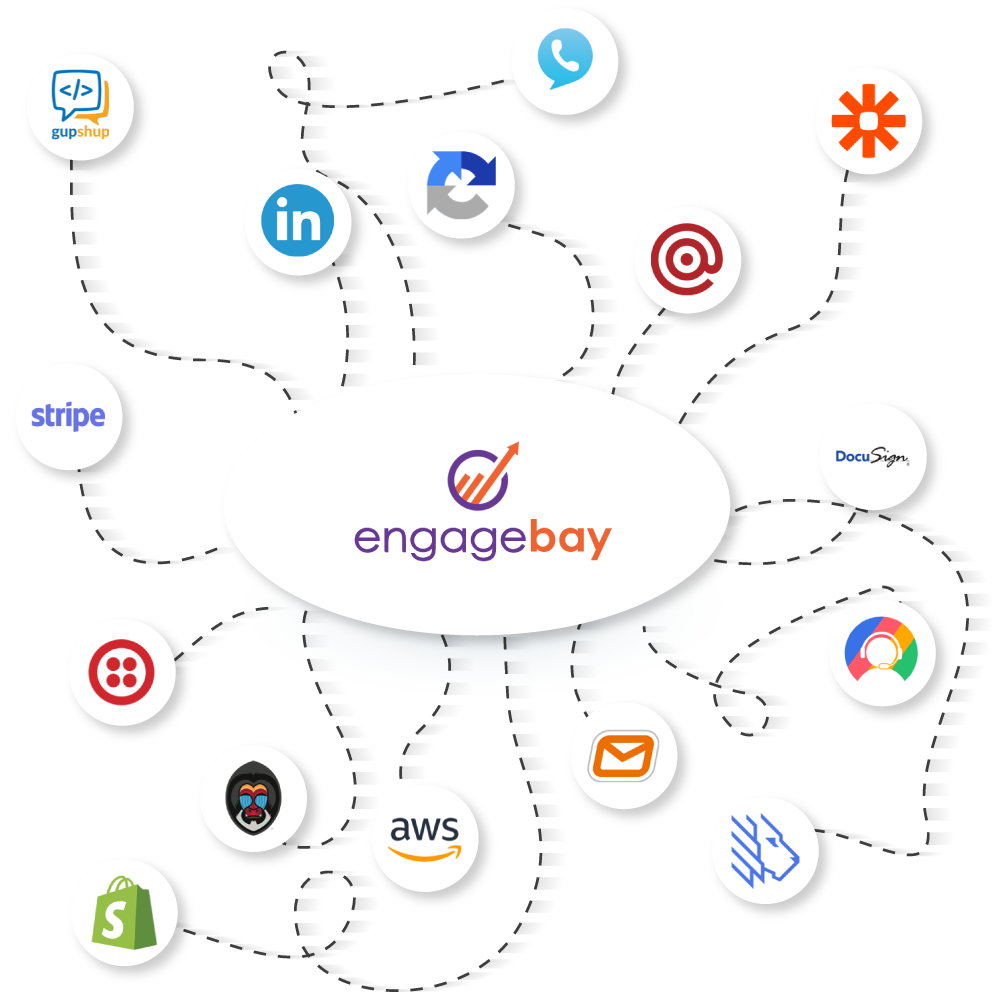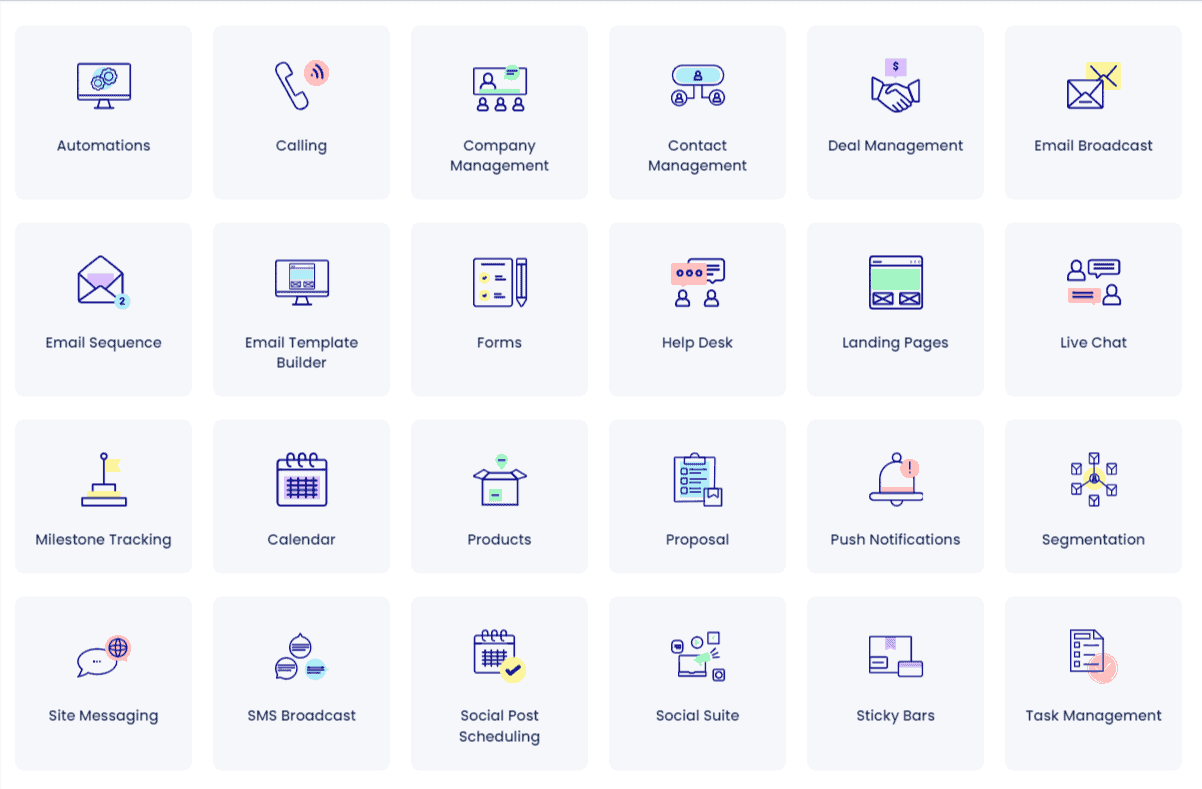At times, companies fail to retain customers despite providing high-quality products and services. The main reason is poor customer service.
If you think customer service is solely the job of your support agents, you are doing it wrong.
Adopting a customer service-oriented culture can set your brand apart from your competitors.
Customer service orientation, simply known as service orientation, implies that a company has adopted a client-centric approach.
Firms put their customers’ needs first. For instance, they won’t try to upsell their products or encourage them to upgrade their subscription if it doesn’t benefit their customers.
Besides, acquiring new customers can be six to seven times costlier than retaining old ones. And improving customer retention rates by 5% can increase your company’s profits by 25% to 95%.
In this guide article, we will cover:
- The key components of customer service orientation
- Characteristics that help improve customer service orientation
- Tips to create a winning customer service orientation strategy
Table of Contents
Key Components of Customer Service Orientation
There are three components or proficiency levels under customer service orientation.
Level 1
The first level of customer service orientation includes developing a positive attitude toward customers.
It involves being aware of your customers’ rights, their expectations in terms of customer service, and how to meet those expectations.
Moreover, the employee should know the appropriate sources to direct the customers to resolve any issues or queries.
Level 2
In the second level, employees volunteer to resolve their client’s grievances.
They have in-depth knowledge of the services required by each customer and the service standards needed to meet their expectations.
Instead of waiting for the customer to contact them, the company communicates with their clients, asking whether any problems exist.
Further, employees are encouraged to work in partnership with the consumers rather than for them, enabling them to share their views on how to deliver better customer service.
Level 3
The third level is considered the most advanced component of customer service orientation and involves proactive engagement with clients.
Rather than asking the customers how to improve their services, teams already know how their patrons evaluate the quality of their services.
As a result, brands are able to identify how services can be changed or improved to meet their clients’ expectations.
What’s more, employees regularly take the initiative to help or guide their customers and the public in carrying out their daily duties.
Read also: 9 Customer Management Strategies to Supercharge Your Customer Loyalty
Characteristics That Help Improve Customer Service Orientation
To build a customer-centric organization, you must imbibe certain qualities within your team members.
Here is a list of qualities that will help enhance customer service orientation at your organization.
#1. Empathy
As part of your company’s efforts to improve customer service orientation, one of the essential traits that employees must possess is empathy.
Being empathetic implies understanding the feelings and expectations of others.
It also indicates putting yourself in the shoes of your customers to better understand their issues and what they expect from your brand.
If you are a salesperson or a customer support agent, you need to have a higher-than-average level of empathy. This is because you are dealing with human beings who can at times, be unreasonable, irrational, or rude.
Hence, it is important to remain patient, understand your client’s needs, and help find solutions to their problems quickly.
#2. Open-mindedness
By being open-minded, employees consider multiple perspectives while planning the needs of their customers. They listen to their customers patiently and provide feedback.
Open-mindedness helps companies better understand the issues faced by their clients and remain flexible while delivering solutions, rather than thinking that their perspective is the only right one.
👉Ready to elevate your customer experience? Uncover the top customer management strategies in our extensive guide! 🏆
#3. Adaptable and agile
Given that customers’ needs are always changing, employees need to be adaptable and agile at all times.
This may imply changing tactics or techniques when resolving different types of customer queries and implementing various strategies in case the client is not responding the way you want them to.
#4. Problem-solving
Another key aspect of customer service orientation is good problem-solving skills.
Since each customer’s needs are different, their problems are also unique.
In addition, you should know how to resolve differences and conflicts among team members.
Being a good problem solver includes analyzing an issue from various perspectives and quickly coming up with solutions.
Read also: Sales vs Customer Service: More Similar Than You Think?
#5. Creativity
In terms of customer service orientation, creativity indicates empowering your employees to participate in problem-solving.
It is not limited to your customer support team. It includes asking workers to brainstorm ways to identify customer experience red flags and solutions to overcome them.
#6. Customer responsiveness
Slow and inefficient service and long response times are why clients leave brands despite providing good quality products or services.
Businesses need to work on improving their customer responsiveness.
This includes proactively addressing your client’s queries by being in regular contact with them, having complete knowledge of their needs and expectations, and how to meet them.
Read also: Perks and Examples of Customer Service-Oriented Companies Like Netflix
How to Create a Winning Customer Service Orientation Strategy For Your Company
Now that you have learned all about customer service orientation, here is how to create a successful service orientation strategy for your company.
#1. Create a customer service-oriented philosophy at your company
The first and foremost step to creating a winning customer service-oriented strategy is to build a client-centric culture.
This includes a set of values that you as a business need to share with your employees and customers.
It involves building a brand that creates a positive impression on your clients and putting their needs above your business.
Whether they work as support agents or not, employees should be trained to know their clients’ needs and expectations, have complete knowledge of their problems, and are always available to resolve their concerns.
#2. Hire people with customer-oriented skills
Although training your existing employees to adopt a client-centric approach is essential, hiring more people with customer-oriented skills is best.
These people can include those who have previously worked in sales or customer service.
Some characteristics that you should seek in a customer-oriented person are being empathetic, active listening, a high degree of attentiveness, proactivity, and patience.
In other words, a customer service-oriented individual is someone who is able to listen patiently, ask all the right questions, address anything that is unclear, and respond to everything promptly.
They should also have deep knowledge of your company’s products and services.
Read also: eCommerce Customer Service Skills: The Fast Track to Customer Happiness
#3. Provide your colleagues with the right tools
Although it is crucial for employees to adopt a customer-centric approach to create a service-oriented environment, it will not be possible without the right tools.
Thus, you should equip your colleagues with the tools that will help them deliver the best customer experience.
These tools can include email marketing software, live chat, CRM, phone system and more, which ensures easy and seamless communication with your customers.

#4. Engage your customers proactively
The highest level of customer service orientation is not limited to helping consumers when they need it but keeping in constant touch with them and assisting them even before they ask.
Moreover, such companies work with their customers as partners.
It implies involving them in decisions related to customer service and asking for their inputs related to product and service design.
#5. Involve other departments
To enhance customer service orientation at your company, it is crucial to engage all employees.
Client satisfaction is not limited to your support team but is the responsibility of all departments.
Each department should adopt a customer-first approach, and information should be shared between all teams.
This will encourage other teams to speak with their customers directly, who no longer need to wait to speak with support agents.
Read also: eCommerce Support Team Training – All Your Questions Answered
#6. Get customer feedback regularly
Last but not least, find out what your customers expect from your brand.
While it is good to anticipate their needs in advance, you should also ask for feedback regularly from your clients.
This will help you understand what aspects of your customer service need improvement.
One of the ways to collect feedback is by sending customer feedback surveys.
In these surveys, you can ask your clients to rate their experience with your products and services, their interactions with your support team, and what more they would like to see.
Once you have gathered feedback, analyze data and identify your company’s weaknesses, and set goals to overcome them.
These can include reducing customer wait times, introducing multiple communication channels such as email and live chat to address client queries, and training underperforming staff to communicate better with customers.
Read also: How Small Businesses Can Provide Exceptional Customer Service
Implement a Service Automation Software
The first step to building a service-oriented culture in your organization is by installing service automation software.
Service automation software can streamline all communications across channels and ensure no information is lost.
It also helps prioritize which issues to resolve first, collect customer surveys, and provide in-depth insights into customer satisfaction rates.

Fortunately, you will find many free as well as paid customer service software in the market.
One of the top affordable service automation solutions is EngageBay. It comes equipped with a lot of functionalities, including help desk software, live chat bots, support groups, canned responses, and more.
And the best part is that it’s free to use for up to 15 users.
Read also: 12 Customer Service Tips for Phenomenal Success
Wrap Up
Adopting a customer service-oriented strategy involves putting your clients above anything else.
A company is considered service-oriented when it proactively listens to its consumers, is well aware of their expectations, anticipates their issues in advance, and constantly looks for solutions.
To become a service-oriented organization, firms need to engage both employees and buyers alike and provide an enhanced customer experience.
Thousands of small companies love EngageBay. Try it today for your customer service solutions.
👉Boost your customer success with the ultimate management strategies – dive into our in-depth guide today! 🚀


Thanks Nikita for sharing the information.
Hey Nikita,
Thank you for writing this value guide that you really care about. As a result, I will be able to follow through with exactly what you suggested for A Guide to Customer Service Orientation for Your Business. Keep sharing value bombs with us and I’ll be sure to keep returning to your posts for future reference. We will definitely be bookmarking this post for future reference, as it is an excellent one.
Regards